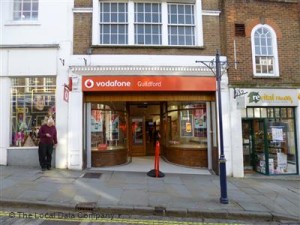Should you decide to [make the right choice and] come to Surrey, chances are there’s quite a lot to be excited about. There’s the new people you’ll meet, the chance to buy Kinder Eggs but not be breaking the law, and the oppertunity to study something you actually want to. One thing that probably hasn’t crossed your mind, however, is your mobile phone.
Let’s get the difficult to swalow bit out of the way: you’re going to need to cancel your beloved contract with AT&T and lose the phone number that’s been yours since the sixth grade. It’s a sad (and expensive) truth, but I can assure you that you’re not going to want to pay to use your US network in England, nor will anyone here want to pay to call you no matter what they’ve got to tell you. If you’ve got a phone you like, it’s also worth asking your current network to unlock it for you. If your phone was produced in the last two or so years, you needn’t worry about network compatibility- even if you’re a current Verizon fan things should work fine here.
Once you’ve actually made it here, get yourself signed up to a network ASAP. If you’re looking to start in 2016, due to recent mergers and acquistions, you’ll have three big networks to choose from: Vodafone, BT (currently comprised of EE, T-Mobile, and Orange), or whatever the Three and O2 merger choose to call themselves. As I’m on Vodafone, I will be speaking to that experience, but the first requirement to signing a contract with any network will be to have a UK bank account, and I’ll let Holly run you through that one. Assuming you’ve got that sorted, you can pop into the shop of your choice on Guildford’s High Street and explain your situation. The staff there will run you through the options for one and two year contracts, much like we have in the US. If you have a phone already, you’ll be on what’s called a SIM only contract, meaning if you can swap your phone whenever you want. If you’re tempted by the new iPhone 6S, signing a standard two year contract will give you unlimited texts and calls to your UK friends and varrying amounts of UK data for around £15-50/month plus only £49 for the new phone itself. If you have any questions with this bit, your new network or the International Student Support office should be able to help you out.
Right, you’ve got your new phone and number, but how exactly do things work here? Let’s begin with calling UK numbers. All of our numbers will start with a ‘0’, and all of our mobile numbers start with an ’07’. Like America, we’ve got area codes too. Calling a Guildford number from your new phone, such as the university, will start with 01483. Unlike America, our numbers don’t really have a standard spacing pattern. So the uni’s main number might be seen as 01483 300 800, 01483 300800, 01483300800, and so on. Calling all mobiles, home phones, and most businesses will be free, but watch out because unlike thinking 1-800 numbers are free, 0800 numbers can sometimes cost quite a lot to call; it may be best to leave doing this to when you can use one of the university’s phones.
Presumably, you’ll want to make calls back to America too. Vodafone offer an add-on for £5 more per month which allows you to make cheaper calls to most of the world. I usually spend around £6 more on top of that in the calls themselves, but I find the convience of using my phone normally worth the extra £11 or so. If perhaps you don’t, Skype, Whatsapp, and a vareity of other communications apps should suit you just fine. If you do, however, find yourself calling the US, it’s easy to do so: just add +1 to the begining of the phone number. For example, where to call the White House from the US you’d dial 202-456-1111 (or 456-1111 from inside DC), you’d dial +1-202-456-1111 from your new UK phone. To get the +, all you have to do is hold down the ‘0’ on your phone until it appears.
If you can manage all of this, then you should be able to manage having a British phone! As always, your questions about anything are welcome to northamerica@surrey.ac.uk or to rf00149@surrey.ac.uk.

